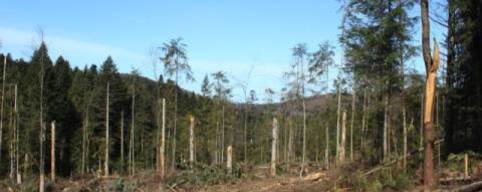

Log export bans (LEBs) have emerged as a popular policy tool in more than 70 countries, particularly in the developing world. These policies restrict the international trade of specific forest products, primarily logs, with the aim of encouraging local industrial development and employment. By retaining raw logs in the country, the idea is to promote the local processing industry, effectively boosting employment rates and adding value to the final products. This approach is rooted in the belief that exporting raw materials provides fewer benefits to a country’s economy than exporting finished goods.
Evidence suggests that LEBs have significantly bolstered employment figures across developing nations. The strategy to drive local processing has been successful in increasing local employment by as much as 25% in some areas. This is especially pertinent in rural and forest-dependent communities where job creation can lead to enhanced livelihoods and reduce poverty levels. By fostering local industries, countries can build a more diversified and robust economy that isn't solely reliant on raw material exports.
The economic rationale behind LEBs is well-documented, with countries observing a resultant growth in industries such as furniture manufacturing, construction, and paper production. Moreover, by supporting domestic industries, countries can retain more economic value within their borders, potentially improving their balance of trade. As industries develop thanks to these bans, the broader economy can benefit from increased tax revenues, infrastructure development, and improved supply chains.
Despite these positive economic outcomes, not all impacts of LEBs align neatly with sustainable growth objectives. The focus on short-term economic outcomes can overshadow broader environmental considerations, leading to severe unintended consequences.
While LEBs have succeeded in boosting local industries, they have simultaneously precipitated significant environmental challenges. Chief among these is an alarming increase in deforestation rates. According to research conducted by Mouhamed Zerbo and colleagues, developing countries enforcing LEBs have experienced a 22.3% spike in deforestation compared to their non-ban counterparts.
This counterintuitive reality stems from the push to increase local timber processing capabilities without adequate reinforcement of sustainable forestry practices. As domestic demand for raw timber escalates due to the increased capacity and need for processing industries, logging pressures intensify. Without stringent forest management practices, forests face degradation and over-exploitation, sometimes beyond the natural regeneration capacity.
The ripple effects of such deforestation are profound, impacting biodiversity and disrupting ecosystems. Forested areas that act as crucial carbon sinks are diminished, contributing further to carbon emissions globally. Reduced forest cover affects local climates and water cycles, impacting agriculture and food security for community residents who rely on these systems for survival.
Additionally, the loss of forests affects indigenous communities who depend on these ecosystems for their culture, traditions, and livelihoods. The intricate balance between human needs and ecological conservation becomes more tenuous as forests recede, highlighting the need for policies that concurrently address economic growth and environmental protection.
The findings from Zerbo and his research team, gathered from 20 years of data across 124 developing countries, underline this critical paradox. While LEBs aim for sustainable resource management by fostering economic engagement and advancement, without simultaneous investments in forest sustainability, they inadvertently fuel deforestation.
Robust, multifaceted policies are necessary to address this paradox. Collaborative efforts that involve governments, non-governmental organizations, and local communities are vital in crafting strategies that create sustainable forestry management frameworks. These should include incentives for sustainable logging, enforcement of regulations on illegal logging, and expansion of community-managed forests, aligning economic benefits with environmental stewardship.
In conclusion, while log export bans present effective means of enhancing local employment in developing countries, their unintended environmental consequences, notably increased deforestation, necessitate a balanced approach. As global conversations tilt towards sustainability, it becomes imperative that economic policies such as LEBs are aligned with broader ecological goals to ensure a future where both people and the planet can thrive.



